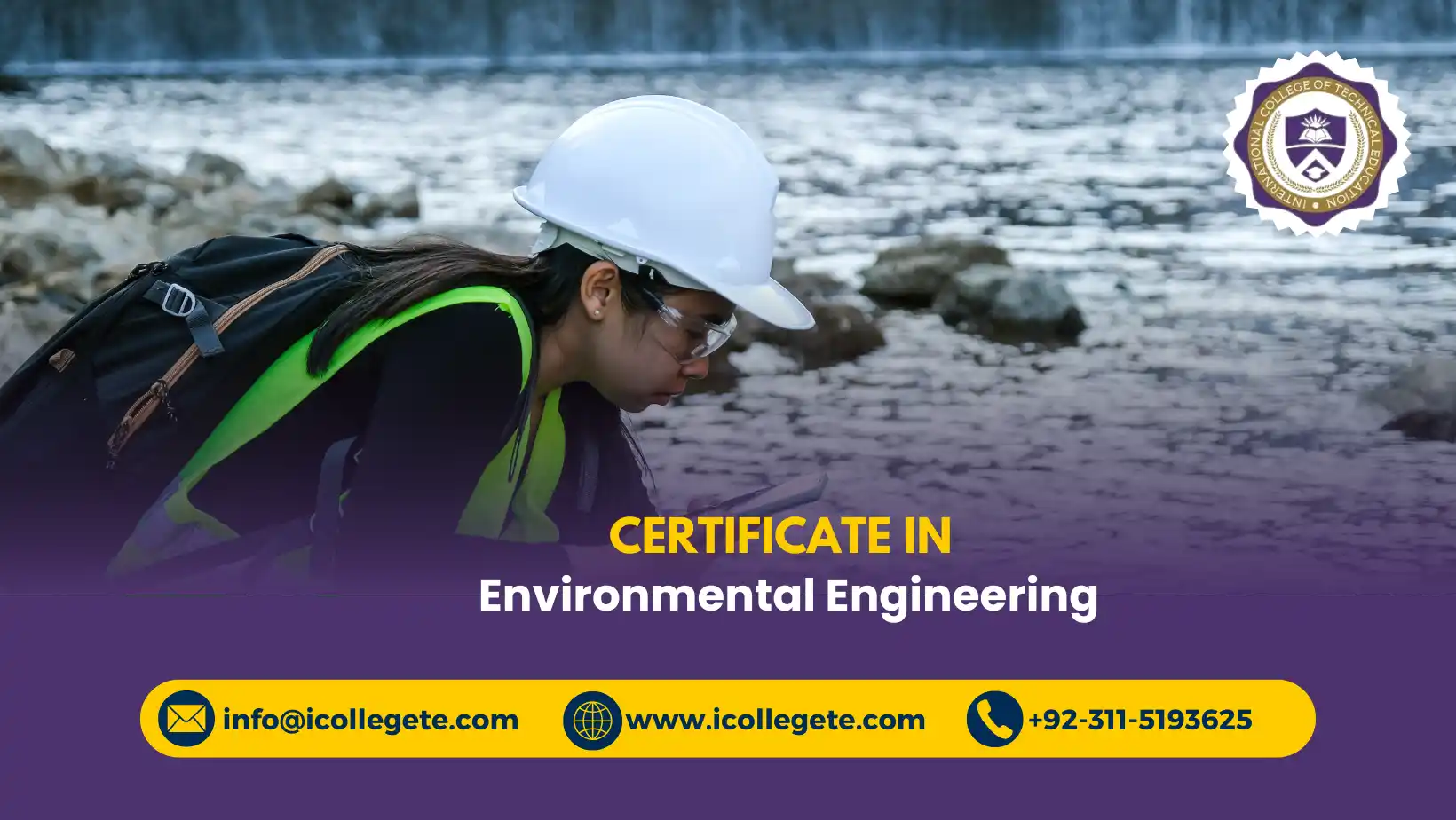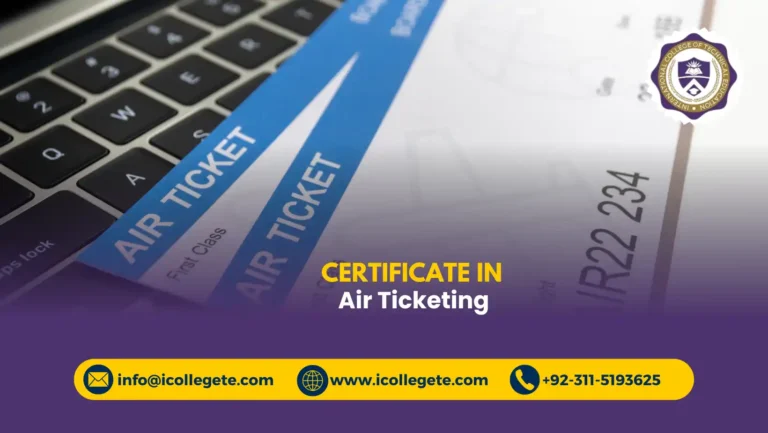As global awareness of environmental issues continues to grow, the need for skilled professionals in environmental engineering has never been greater. The Environmental Engineering course in Attock offers a comprehensive foundation for those seeking to understand, manage, and solve environmental challenges through scientific and engineering principles. This course is an excellent opportunity for students and professionals aiming to contribute to sustainability, pollution control, and ecological preservation.
The Environmental Engineering course focuses on equipping participants with the knowledge and tools needed to address pressing environmental concerns. Topics include water and air pollution control, waste management, sustainable development, environmental impact assessment, and resource conservation. The course is ideal for those interested in applying engineering techniques to improve environmental quality and public health.
Offered in Attock by technical institutes and colleges, this course serves as a valuable stepping stone toward careers in environmental consultancy, regulatory bodies, and industrial sustainability departments.
This program is designed to offer a balanced combination of theory, practical training, and project-based learning. Whether delivered as a diploma, degree, or certification course, the structure typically spans from several months to multiple years, depending on the format.
Core focus areas include:
- Environmental science fundamentals
- Pollution sources and control technologies
- Water and wastewater treatment systems
- Solid waste and hazardous material management
- Environmental laws and regulations
Participants learn through lectures, laboratory experiments, field visits, and group projects that mirror real-world environmental challenges.
Study Units
The Environmental Engineering course in Attock generally includes the following core study units:
- Introduction to Environmental Engineering
- Overview of environmental issues
- Role of engineers in sustainable development
- Water Supply and Wastewater Treatment
- Drinking water quality standards
- Design of treatment plants
- Air Pollution Control
- Sources and effects of air pollutants
- Emission control methods and equipment
- Solid and Hazardous Waste Management
- Collection, disposal, and recycling systems
- Handling and treatment of hazardous substances
- Environmental Impact Assessment (EIA)
- Procedures for evaluating environmental risks
- Mitigation strategies and reporting
- Environmental Laws and Regulations
- National and international environmental policies
- Legal responsibilities of industries and organizations
- Sustainable Engineering Practices
- Renewable energy integration
- Green building techniques and carbon footprint reduction
Learning Outcomes
Upon completing the Environmental Engineering course, students will be able to:
- Understand and evaluate key environmental issues affecting air, water, and land
- Design and manage systems for pollution control and waste treatment
- Conduct environmental impact assessments for various projects
- Apply sustainable engineering practices in real-world applications
- Interpret and follow environmental laws and standards
- Develop solutions that promote environmental sustainability
Course Benefits
- Skill Development: Gain technical skills in pollution control, treatment design, and environmental management.
- Career Readiness: Prepare for in-demand roles in both the public and private sectors.
- Hands-On Training: Learn through labs, fieldwork, and real-case environmental projects.
- Environmental Awareness: Enhance your understanding of sustainability, conservation, and climate resilience.
- Professional Growth: Increase your chances of employment in environmental consulting, government agencies, or green industries.
Who is This Course For?
The Environmental Engineering course is suitable for:
- Recent high school graduates interested in engineering and sustainability
- Students of civil, chemical, or mechanical engineering seeking specialization
- Environmental science graduates aiming to enhance their technical skills
- Industry professionals working in health, safety, and environmental departments
- Policy-makers and educators looking to understand environmental engineering principles
No advanced background in engineering is required for foundational or diploma-level programs, though more technical programs may require basic science and math proficiency.
Future Progression
Graduates of the Environmental Engineering course in Attock can pursue:
- Higher Education: Bachelor’s or Master’s degrees in Environmental Engineering or Environmental Science
- Professional Certifications: Such as NEBOSH Environmental Certificate, ISO 14001 Lead Auditor, or LEED accreditation
- Career Roles: Including Environmental Engineer, Sustainability Coordinator, Waste Management Specialist, Water Quality Analyst, or EIA Consultant
- Research Opportunities: With institutions working on clean energy, climate change, and urban sustainability
- Government and NGO Positions: Working on public policy, community outreach, and environmental regulation
The Environmental Engineering course in Attock is a timely and important educational pathway for those passionate about preserving the environment and driving sustainable development. By merging engineering knowledge with environmental awareness, this course prepares individuals to tackle some of the most critical challenges of our time.






